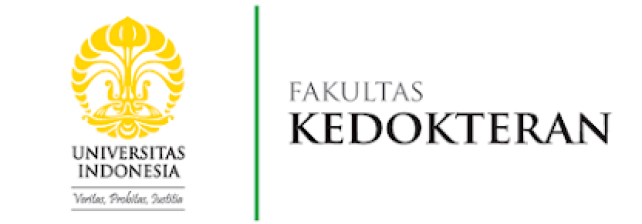Faculty of Medicine, Universitas Indonesia in collaboration with Cipto Mangunkusumo Hospital organized an event titled “Seminar on Academic Health Center” which was held on Saturday (17/5), at the Auditorium of the Faculty of Medicine, Universitas Indonesia, Salemba, Jakarta.
The seminar was opened by opening remarks from the Dean of the Faculty of Medicine , Dr. dr. Ratna Sitompul, SpM(K) and the Director of Cipto Mangunkusumo Hospital, Dr. dr. Czeresna Heriawan Soejono, SpPD – KGer. Both gave a speech with the same title but with a different point of view “Strategic Plans of FMUI and RSCM , Collaboration towards Better Health “. Faculty of Medicine standpoint as educational institution and Cipto Mangunkusumo Hospital as a teaching hospital. Both speech invites the participants to put our eyes open about health services in Indonesia . Facing a fairly rapid population growth, Indonesia is currently facing serious health challenges. The increasing prevalence of degenerative diseases and unresolved problems of infectious diseases , was a challenge for service centers and health workers in Indonesia. To overcome this, the appropriate health strategy is needed in order to avoid the Indonesian people are getting more serious health problems in the future.
Seminars on Academic Health Center was divided into two sessions . The first session discussed the topic of “The Future of the Academic Health Center in Indonesia”. The speakers in this session were The Acting Rector, Prof. Dr. M. Anis , M.Met delivering a topic entitled “The Role of the Academic Health Center from the Perspective of the University with Medical and Health Science Majors” ; The Director General of Higher Education , Ministry of Education and Culture, Prof. Dr. Ir. Djoko Santoso , MSc, presenting a topic entitled “The Role of Ministry of Education and Culture in Supporting Academic Health Center” ; Director General of Health Efforts, Ministry of Health, Prof. Dr. dr.med . Akmal Taher , SpU (K), conveying a topic on ” The Role of the Ministry of Health in Supporting Academic Health Center ” ; and the last was Prof. dr. John Wong Eu Li, PhD, Chief Executive of the National University Health System (Establishing an Academic Health Center : Experience from NUHS). Prof. dr. Soebandrio Amin, PhD, SpMK(K) was the moderator for the first session, he then closed the first session with a discussion and Q&A .
After lunch break, the second session continued with the topic of “Experiences from Other Academic Health Centers (within Indonesia and abroad)” which was moderated by Prof. dr. Pratiwi P. Sudarmono, SpMK(K), PhD. As a speaker at the second session, Prof. dr. Lokman Saim, PhD from Universiti Kebangsaan Malaysia (Establishing an Academic Health Center: Experience from SMEs); Prof. dr. Irawan Yusuf, PhD, University of Hasanuddin (Academic Hospital of Hassanudin University), and Prof. dr. R. Samsuhidajat, SpB-KBD (The Urgency for Academic Health Center in Indonesia).
Health care services should be given as a whole to the community, a comprehensive, and integrated with good coordination of all levels of health care. Integration of health services, medical education, and research has been conducted in several countries in the world including in the Southeast Asian country since the early 90’s in the form of the Academic Health Center (AHC).
AHC is a collaboration between the health service and medical school teaching hospitals aimed at improving the effectiveness and efficiency of the value of the two institutions in providing health services to the community. AHC is intended to integrate a variety of researchs and medical educations to produce high quality health services. In Indonesia, the AHC is a combination of the essential role of the Faculty of Medicine UI and Cipto Mangunkusumo Hospital, which became a model of cooperation in the most appropriate institution achieve Healthy Indonesia 2020. Establishment AHC is expected to support the emergence of academic health centers in Indonesia.
Along with the increasing health problems, of course, the demand for health care patients also increased. To overcome this, the government issued a policy of the National Health Insurance system (JKN) which has been applied since January 2014. JKN system is expected to become a major force in order to achieve Healthy Indonesia 2020.
The challenge for all Indonesian healthy people requires relevant institution for educating health professionals and improve medical education and research programs in an integrated manner. Doctors are required in the future for an increasingly competitive in order to improve health services and care to patients. Reflecting on Medical Education Act of 2013, medical school and teaching hospital will take an important role in supporting health education and the implementation of an integrated research to maximize the health services for the people of Indonesia.
Seminars on Academic Health Center is expected to be a means of connecting to formulate a good understanding of coordination between the system of medical education, research and health care professionals in improving patient care and health care in Indonesia. (Mel/Iwa/Dan/Die)
